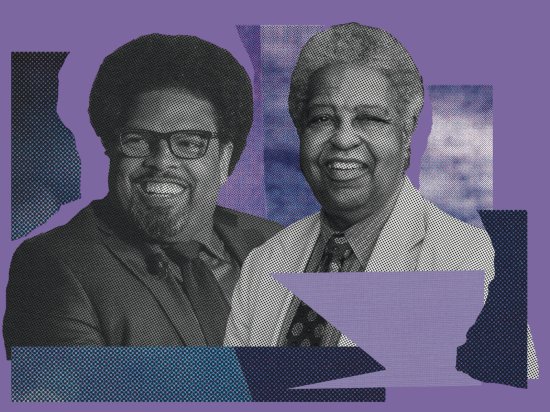
In July 2023, Connecticut deposited $3,200 into an account for a newborn creating the nation’s first ever baby bond.
Over the next 18 to 30 years, the effects of time and compounding interest will give that baby up to $24,000 to pay for college, make a down payment on a home, start a business, or do other things that will shape her life and build wealth. Connecticut’s baby-bond initiative will automatically enroll the estimated 15,000 babies born each year participating in the state’s Medicaid expansion program. That’s a modified version of an idea Darrick Hamilton first described to William “Sandy” Darity, his dissertation adviser, as a newly minted academic about 25 years ago.
[time-brightcove not-tgx=”true”]
Hamilton, now 53, a university professor of economics and urban policy as well as the founding director of the New School for Social Research’s Institute on Race, Power and Political Economy, thought that some kind of mechanism was needed to disrupt the persistent racial wealth chasm, the largest and most persistent economic gap of them all. He suggested the equivalent of trust accounts for kids funded by the government. Economists, he says, have a bad habit of fixating on the role of behavior in creating life outcomes or economic conditions. But policy can shape behavior and influence life outcomes too.
“The essence of wealth is functional,” Hamilton says. “We tend to think about wealth as an outcome, but its real value is what it can do for you.”
The racial wealth gap in the U.S. is extreme. In 2022, median wealth for a white family was six times that of a Black one. The mean racial wealth gap is considerably larger. In 2022, the median difference in Black-white household wealth was about $240,100, while the difference at the mean was four times as large, at $1.15 million.
Darity and Hamilton had some healthy debate on what a baby-bond program should look like. Why focus on infants instead of young adults? Why not give low-wealth parents cash when a child is born or as kids grow up? Should wealth-gap proposals focus their attention on median or mean differences between groups? All these approaches have some merit, Hamilton says. The men landed on a domestic baby-bonds program, in which the government would make deposits into accounts for every infant in the country, with the largest amounts going to children from the lowest-wealth families. The accounts would be held in trust by the government until the child reached maturity and then transferred for activities that can help to build wealth.
Hamilton and Darity knew they might face resistance. Researchers have found that white voters often oppose programs or services for the poor, because they perceive them as benefiting Black people, even when those programs might be helpful to their own families. Yet since baby bonds would be universal, Hamilton and Darity thought they’d be able to navigate this issue. They also believed that baby bonds have the potential to bypass the usual politics of blame, shame, and punishment that so often define social-policy debate in the U.S.
“Nobody could claim that the infants were responsible in any way for the financial position of their family,” says Darity, today 70 and a distinguished professor of public policy and economics at Duke University’s Sanford School of Public Policy where much of his work focuses on reparations. “So it was kind of an innocence argument or strategy.”
In addition to Connecticut, California and Washington, D.C., have approved different types of baby-bond programs on which Hamilton and his team consulted. The team has also worked with lawmakers in 12 other states where some type of baby-bond legislation has been introduced since 2021. Hamilton attributes some of that momentum to a federal bill introduced by Sen. Cory Booker and Rep. Ayanna Pressley calling for universal baby bonds. It has not advanced since Booker first introduced it in 2018 but continues to gain co-sponsors each year.